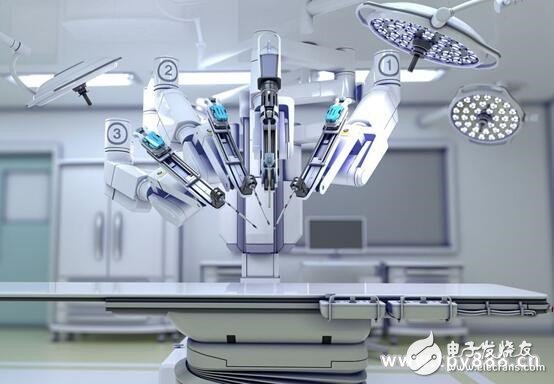A new doctor has been stationed in the examination room and has no name yet. In fact, these doctors don't even have a face. Artificial intelligence has entered hospitals around the world. There is nothing to worry about for those who are wary of robotic acquisitions; the use of artificial intelligence in health care does not necessarily lead to conflicts between human thinking and machines. Artificial intelligence expands and strengthens in the examination room, sometimes relieving the nervous nerves of the doctor, so that the doctor can better serve the patient.
Bertalan Meskó, known as the “Future Medical Scientist,†regards artificial intelligence as a “21st Century Stethoscopeâ€. His assessment may be more accurate than expected. While various techniques and tests provide them with all the information they need to diagnose and treat patients, doctors have already overburdened clinical and administrative responsibilities, and categorizing the vast amount of information available is a daunting task, almost no Possible tasks.
This is the meaning of the existence of a stethoscope in the 21st century.
Despite this, the application of artificial intelligence in medicine has gone beyond the scope of administrative management. From powerful diagnostic algorithms to well-designed surgical robots, this technology is well known in the medical world. Obviously, AI has a place in medicine, and we don't know its value. Imagine that artificial intelligence is part of the patient care team, and we must first understand better how artificial intelligence reaches the level of human physicians. How to compare accuracy? What specific or unique contribution can AI make? Artificial intelligence is very helpful or even harmful in medical practice? Only after we answer these questions can we start to predict and then build what we want The future of AI.

AI VS human doctor
Although we are still in the early stages of development, artificial intelligence has the same ability to diagnose patients as doctors. Researchers at John Radcliffe Hospital in Oxford, England, have developed an AI diagnostic system that is more accurate than doctors in diagnosing heart disease for at least 80% of the time. At Harvard, researchers created a "smart" microscope that can detect potentially fatal blood infections: AI assists through training to get 25,000 slides on a series of 100,000 images to make the bacteria more visible. The AI ​​system has been able to classify these bacteria with 95% accuracy. A study by the University of Yokohama, Japan, showed that a new computer-assisted endoscopic system can show signs of potential cancer growth in colon cancer with a sensitivity of 94%, a specificity of 79%, and an accuracy of 86%.
In some cases, researchers have also found that artificial intelligence outperforms human physicians in diagnostic challenges that require rapid judgment, such as determining whether a lesion is cancerous. In a study published in the December 2017 issue of the Journal of the American Medical Association, deep learning algorithms were better able to diagnose metastatic breast cancer than time-critical human radiologists. Although human radiologists may perform well without time to review cases, in the real world, rapid diagnosis may affect the patient's life and death.
Of course, IBM Watson has such a powerful diagnostic capability: when the challenge collects meaningful insights from the genetic data of tumor cells, human experts spent about 160 hours reviewing and providing treatment recommendations based on their findings. . Watson made the same feasible advice in just ten minutes. Google recently announced an open source version of DeepVariant, the company's artificial intelligence tool for analyzing genetic data. It was the most accurate tool of its kind in last year's "FDA True and False Challenge."

Artificial intelligence is also better than humans before predicting health events. In April, researchers from the University of Nottingham published a study that showed that by training a large amount of data on 378,256 patients, self-study artificial intelligence predicts that patients have cardiovascular events that are 7.6% higher than current standards of care. . To make this number more promising, the researchers wrote: “In about 83,000 recorded samples, this is equivalent to saving an additional 355 patients. Perhaps most notably, the “false alarm†of neural networks is also With a 1.6% reduction, this risk is overestimated and may lead to unnecessary surgery or treatment, many of which are very dangerous.
In understanding large amounts of data, artificial intelligence is definitely more than human. This is what is needed in the growing field of precision medicine. Hope to fill this gap is the Human Diagnostics Project (Human Dx), which combines machine learning with the doctor's practical experience. The organization is preparing input from 7,500 doctors and 500 medical institutions in more than 80 countries to develop a system that allows patients, doctors, organizations, device developers or researchers to access the system to make more informed Clinical decision making.
More "human touch" mental health
Skyler Place, director of chief behavioral science at Mobile Health at Cogito, a Boston-based artificial intelligence and behavioral analysis company, said: "I think the value of artificial intelligence is to empower humans, not humans."
Cogito has been using artificial intelligence speech recognition and analysis to improve customer service interactions in many industries. The company's entry into the medical industry is in the form of Cogito Companion, a mental health application that tracks patient behavior.
The app monitors whether the patient's cell phone has active and passive behavioral signals, such as location data, which may indicate that the patient has not left home for a few days, or a communication log indicating that they have not texted or are calling anyone for a few weeks, ( The company claims that the app only knows if the patient is using their phone to make a call or text, it doesn't track what the user is calling or saying. The patient's care team can monitor the signs in subsequent reports, which in turn may indicate changes in the patient's overall mental health.

Cogito has teamed up with several healthcare systems across the country to test the app, which has found a special location among veterans. Veterans face high risks of social isolation and may be reluctant to engage with the medical system, especially mental health counseling, due to social stigma. "We found that applications are a way to build trust and drive the health care industry in a broader way," Place said.
Here is where AI goes: the app also uses machine learning algorithms to analyze "audio check" - the patient's recording (somewhat similar to an audio diary). These algorithms are designed to extract emotional clues just as two people are talking. Place explained: "We can build algorithms that match the way people talk, such as energy, intonation, dynamics or fluctuations in conversation.
(robot) under the scalpel
One of the most prominent applications of artificial intelligence in the medical field over the past few decades has been the development of surgical robots.
To date, in most cases, surgical robots (da Vinci is best known) as an extension of human surgeons can control devices from nearby consoles. One of the more ambitious surgeries called "World's No. 1" was held in Montreal in 2010. This is the first performance of a surgical robot and robotic anesthesiologist (named McSleepy). The data collected reflects the impressive performance of these robotic doctors.

In 2015, more than a decade after the first surgical robot entered the operating room, the Massachusetts Institute of Technology conducted a retrospective analysis of FDA data to assess the safety of robotic surgery. During the study period, 144 people died and 1,391 were injured, mainly due to technical difficulties or equipment failure. According to the report, “although the number of reports is relatively large, most of the operations are successful and there are no problemsâ€. However, the number of events in more complex surgical sites (such as cardiothoracic surgery) is "significantly higher" than in areas such as gynaecology and general surgery.
Can the patient sue the robot? Because the technology is still relatively new, the lawsuit in this case constitutes a legal gray area. Traditionally, experts believe that medical malpractice is caused by a doctor's negligence or violates clear medical standards. However, the concept of negligence implies the lack of awareness of artificial intelligence itself, and it is conceivable that robots can be considered as a performance standard, then these standards need to exist.
So if it is not the responsibility of the robot, then who should blame? Can the patient's family be responsible for the human surgeon responsible for supervising the robot? Or should it be the responsibility of the company that manufactures the robot? Design the specific engineer of the robot? There is currently no clear answer to this question, but this issue needs to be resolved soon.
Looking to the future
In the years to come, artificial intelligence will play an increasingly important role in the medical field: in a report by Accenture Consulting, the market value of artificial intelligence in medicine in 2014 was $600 million. By 2021, this number is expected to reach $6.6 billion.
The industry may flourish, but we should not rush or arbitrarily integrate AI. This is partly because the logical things for humans are not machines.
Algorithms may also inherit our biases, in part because of the lack of diversity in materials used to train artificial intelligence. In medicine, the data accepted by the machine largely depends on who is conducting the research and where to conduct the research. White males still dominate the clinical and academic fields, and they also account for the vast majority of patients involved in clinical trials.
One of the purposes of medical decision-making is whether the benefits of procedures or treatment exceed risk. A small risk-benefit and equality analysis will have a long way to go when considering whether artificial intelligence is prepared to be equal to surgeons in the operating room.
Although sometimes we are concerned that robots will lead us to integrate artificial intelligence into the medical field, humans are the ones who engage in these conversations and ultimately drive change. We can decide where to apply artificial intelligence, and the best way is probably to use the old method. Doctors can use artificial intelligence as a tool to start building the future they want – the best future for them and their patients, rather than trying to predict what the doctor will look like in the next 20 years.
Three Phase Portable EV Charger
Three Phase Portable Ev Charger,Ev Home Charger,Portable Electric Charger,Electric Charger
Yangzhou JERI New Energy Co., Ltd. , https://www.jrevcharging.com